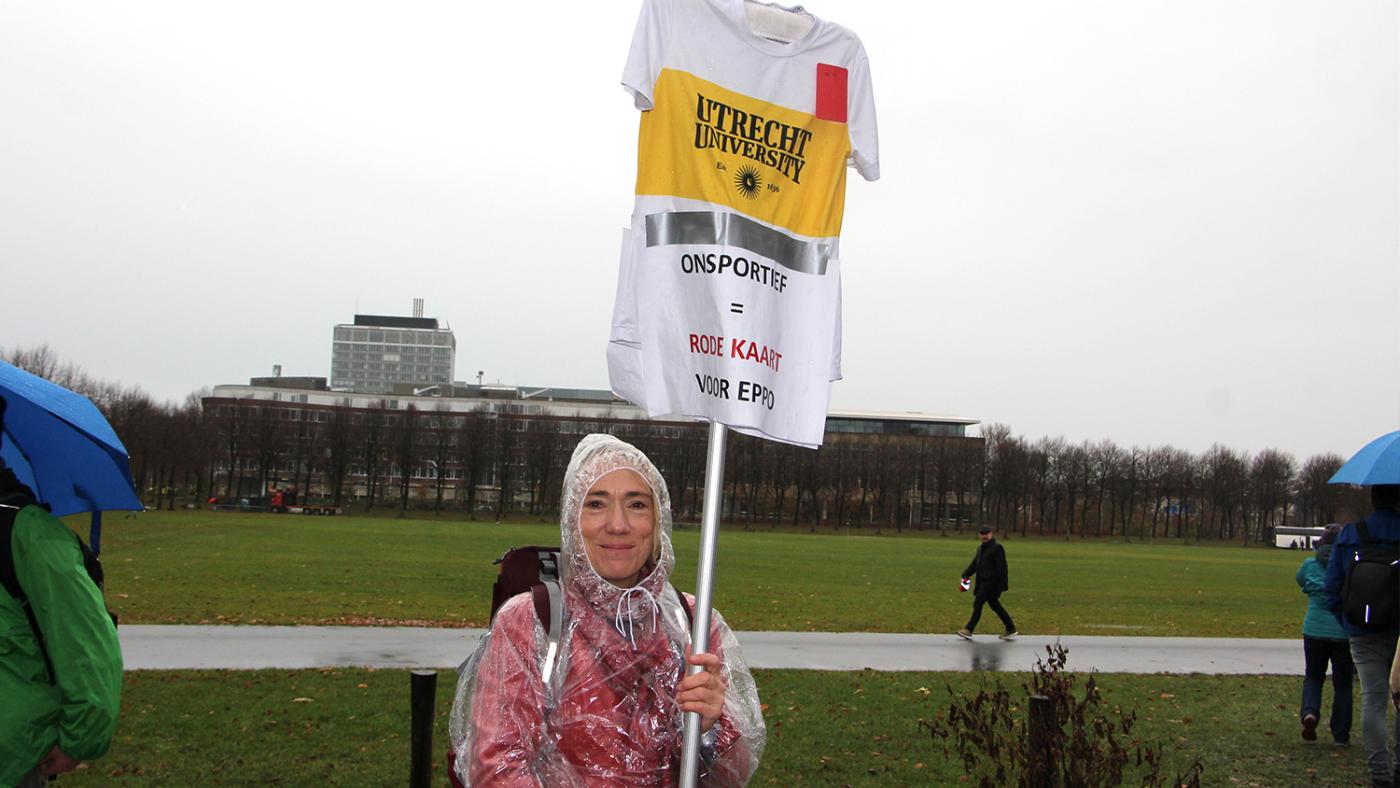Gathering in Utrecht on Wednesday
Nijmegen will go on strike in March, other universities yet to set a date

Despite the deal with four opposition parties, most austerity measures announced by the government for higher education and research will go through. A total of 1.3 billion euros will be cut from the sector if the Senate approves the budget. Trade unions and protest groups haven't given up, however: they are proposing a "relay strike", in which academic institutions will take turns walking out of their jobs.
Local meetings will be held in each institution to define when and how the strike will be organised. In Utrecht, the meeting will happen this Wednesday, February 5, at 5:00 pm, in the Ruppert building at Utrecht Science Park, room 0.40. Those interested in participating can register here.
First
Radboud University, in Nijmegen, is the first institution to set a date for its strike. What the strike will look like remains to be seen. Participants could stand somewhere with banners or walk out of their jobs at the same time, for example.
"It would be nice if students could still have classes," Alexandra van Huffelen, chair of Radboud's Executive Board, said earlier this week. She refrained from supporting the strike, partly because she still hopes the austerity measures can be stopped in the Senate.
Deal
That's very unlikely, however. Late last year, the four parties in the cabinet struck a deal with four opposition parties to ensure the budget would pass. Though the deal watered down the cutbacks to education as a whole, most austerity measures affecting higher education and research remained. Currently, the senators are asking questions about the budget in writing and talking to experts about the legality and feasibility of the plans, but thanks to the deal, the cabinet can count on a majority in the Senate.
"Radboud's president is new to the job, so let us forgive this statement," writes Leiden professor Remco Breuker on Bluesky. Breuker is a prominent member of WOinActie, a protest group denouncing excessive workloads in the higher education sector as a result of underfunding. He is also one of the main organisers of the recent protests held by the sector against the budget cuts. However, despite cutting Van Huffelen some slack, he remains critical. "We need university administrators who stand for us instead of using lukewarm words."
If all goes well, the relay strike will culminate in a nationwide protest. Trade union FNV is not involved in the planning this time, a spokesperson informs. "The strike dates will be decided by protest groups inside each university. This is a grassroots movement, coming from the bottom up."